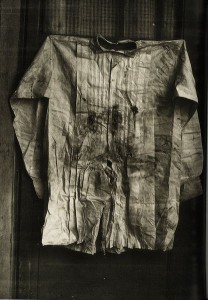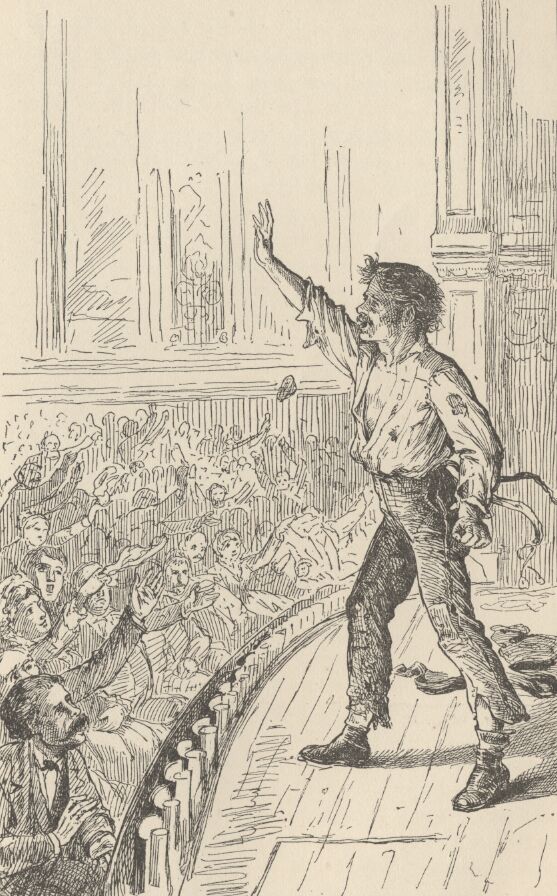The nineteenth-century Pennsylvania-born preacher and orator Henry Clay Dean (not to be confused with the statesman Henry Clay) lived in roughly the same time frame as Horatio Alger, which made sense, since Dean was Algeresque, a poor and ragged lad who made his way in the world, though he never lost the raggedness.
Mark Twain, another contemporary, had this to say about Dean: “He began life poor and without education. But he educated himself – on the curbstones of Keokuk. He would sit down on a curbstone with his book, careless or unconscious of the clatter of commerce and the tramp of the passing crowds, and bury himself in his studies by the hour, never changing his position except to draw in his knees now and then to let a dray pass unobstructed; and when his book was finished, its contents, however abstruse, had been burned into his memory, and were his permanent possession. In this way he acquired a vast hoard of all sorts of learning, and had it pigeonholed in his head where he could put his intellectual hand on it whenever it was wanted. His clothes differed in no respect from a ‘wharf-rat’s,’ except that they were raggeder, more ill-assorted and inharmonious (and therefore more extravagantly picturesque), and several layers dirtier.”

"He was a man who put on a clean shirt every New Year's Day and didn't take it off until the 31st of December."
The Brooklyn Daily Eagle took notice of Dean’s death with an article in its February 10, 1887 edition. An excerpt:
“Who was Henry Clay Dean? According to a legend familiar in every newspaper office at the mighty West he was a man who put on a clean shirt every New Year’s Day and didn’t take it off until the 31st of December. But that does not fully describe him. Mr. Dean had a useful and honorable career. In the first place he was a preacher of the Gospel and expounded the simple and beautiful truths of the Sermon on the Mount with an unction never surpassed. It was said of him by a Chicago admirer that his fervid eloquence ‘was enough to make the pin feathers of an heretical rooster quiver.’ In the second place he was a political orator whose addresses from the stump often recalled the extemporary speeches of Tom Benton. In the third place he was chaplain of the United States Senate at a time when Senators feared God more than they do to-day, and when their hearts and minds afforded a richer soil for the seeds of divine knowledge. Lastly, Mr. Dean was a Democrat, pure and undefiled–one of the ‘old timers,’ who believed that although Noah was justified in taking a Republican and Democrat into the ark, he ought to have thrown the former overboard before the waters subsided. He was a good man and true. Peace to his ashes.”
Tags: Henry Clay Dean, Horatio Alger, Mark Twain

